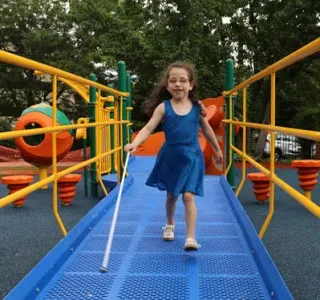
UKZN Empowers Visually Impaired Students with AI Glasses for Greater Accessibility
The University of KwaZulu-Natal (UKZN) is pioneering accessibility for visually impaired students by providing Envision Smart AI Glasses to enhance independence in academic environments. Launched on June 11, 2025, this initiative aims to empower students like Bright Sello, Thandeka Ngcobo, and others, ensuring they can confidently navigate their studies and campus life.
Redefining Independence for Visually Impaired Students
With the introduction of Envision Smart AI Glasses, visually impaired students at UKZN can now navigate campus more independently and with less reliance on classmates for assistance.
Bright Sello emphasized the transformative effect of the glasses, stating: “For the first time, I feel like I won’t be left behind. I finally have control.”
The glasses allow users to read notes and recognize friends, fostering a newfound sense of dignity and autonomy in their academic pursuits.
UKZN’s Commitment to Inclusive Education
The partnership between UKZN and Sensory Solutions aims to enhance accessibility on campus, showcasing the university’s proactive approach to inclusivity.
Amith Ramballie, head of the Disability Support Unit, stated: “These glasses reflect our belief in every student’s right to learn, grow, and succeed independently.”
UKZN’s rigorous selection process ensures that the technology targets those students who would benefit the most, thus promoting equal opportunities in education.
The University of KwaZulu-Natal’s initiative to provide Envision Smart AI Glasses to visually impaired students marks a monumental step in enhancing accessibility on South African campuses. By enabling these students to navigate their academic environments independently, UKZN is not just investing in technology but also reaffirming its commitment to inclusivity and empowerment. As Bright Sello articulated, these glasses have not only improved his educational experience but have also restored his sense of independence and dignity. This pioneering effort sets a precedent for other universities in South Africa, showcasing the importance of integrating assistive technologies in higher education.
Let us know your thoughts by leaving a comment below!
Don’t forget to share this article with others who may find it helpful.







